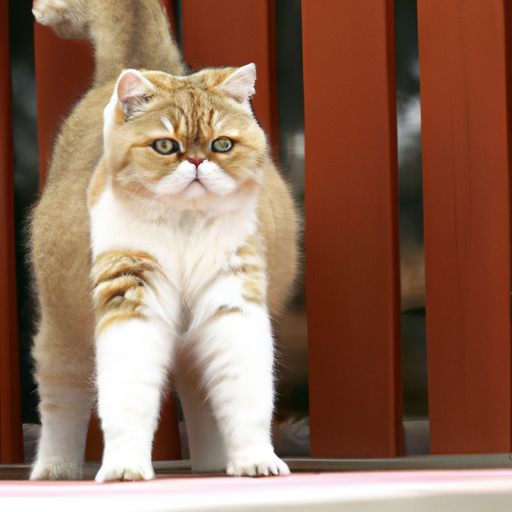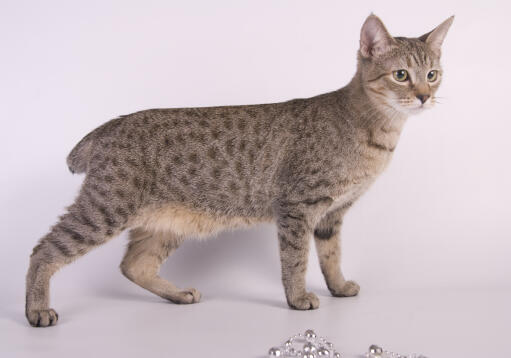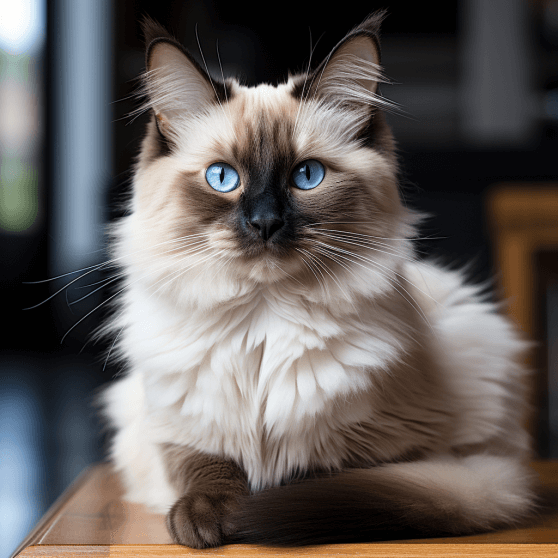Bombay Cat Breed
Picture this: A sleek, black feline with piercing copper eyes and a muscular physique, possessing the agility of a panther but the heart of a domestic cat. This is the Bombay Cat Breed, a captivating blend of mystery and familiarity. In this article, you’re going to familiarize yourself with this delightful breed, discovering its unique traits, essential care tips, and fascinating history, so prepare to become an expert on all things Bombay.
Description of the Bombay Cat
When you lay your eyes on the Bombay cat for the first time, you might think you’ve come in contact with a miniature black panther. Their striking appearance and stunning features will make you fall head over heels for this particular breed.
Physical Attributes
The Bombay cat is well known for its muscular, medium-sized body that screams strength and agility. They have a round head and a short, sleek coat which gives off a satin-like sheen. The eyes of this captivating breed are usually large, round, and range from gold to copper, creating a compelling contrast with their jet black coat.
Common Colors
When it comes to Bombay cats, there’s only one color that rules – black. The breed’s coat is monochromatic, which means it doesn’t have any other colors or patches. In some rare cases, you may find a slight chocolate or sable hue, but those instances are few and far between.
Size and Weight
Bombay cats are robust and medium in size, with males usually weighing between 8 to 11 pounds and females around 6 to 9 pounds. Despite their weight, they are incredibly agile and often impress with an elegant, panther-like stride.
Distinctive Features
The most distinctive feature of the Bombay breed is its glossy black coat, which is so dark it appears to absorb light. Also, the gold to copper eyes, coupled with its black coat, gives it a mysterious look resembling a miniature black panther.
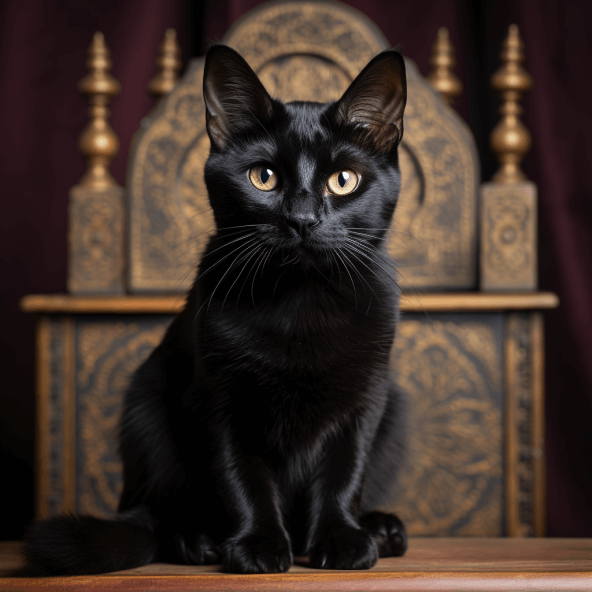
History of the Bombay Breed
This breed’s unique look can be traced back to its origins and the relentless efforts of one dedicated breeder.
Origination and Ancestors
The Bombay cat is a relatively recent breed, created in the 1950s in Louisville, Kentucky by a cat breeder named Nikki Horner. She aimed to create a domestic cat that resembled a wild panther. By crossbreeding sable Burmese cats with black American Shorthairs, she eventually accomplished creating the Bombay cat, which she named after the black panther native to India.
Journey to America and Recognition
Bombay cats were recognized by the Cat Fanciers’ Association in 1970 and then by The International Cat Association in 1979. Today, Bombay cats are bred with other Bombays to maintain the breed’s unique characteristics, and these mini panthers are now an established and popular breed in America.
Status in Current Times
Bombay cats are known for their panther-like appearance and gentle nature. They are popular pets, especially in America, and they also compete in several cat shows worldwide. Additionally, they are officially recognized as a breed by various cat registries, such as the Cat Fanciers’ Association (CFA) and The International Cat Association (TICA).
Bombay Cat Temperament
While they may look mysterious and wild, Bombay cats love the domestic life and are known for their friendly disposition.
Behavior Characteristics
Generally, Bombay cats are calm, easy-going, and affectionate. Known as a lap cat, you’ll often find your Bombay curled up with you, soaking up all the pets and scratches they can get. They have a genuine fondness for their family, making them perfect companions.
Interaction with Humans
Bombay cats are notably social and thrive on human interaction. Their loving nature and need for attention often lead them to follow their humans around the house, eager to participate in whatever you are doing. They are vocal but not overly so. When they demand your attention, they do it with a gentle, pleasing purr.
Interaction with Other Animals
Bombay cats usually get along well with other pets. Their easy-going nature makes them tolerant of others, although they definitely enjoy being the center of attention. Early socialization helps them adapt to other pets, ensuring a peaceful cohabitation.
Compatibility with Children
When it comes to children, Bombay cats are a great match. Their playfulness and tolerance make them excellent companions for kids. They’re not overly sensitive to noise or disturbance, but as with all pets, it’s essential to teach children to treat them with respect and kindness.
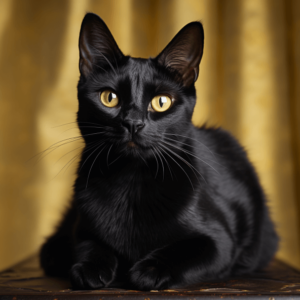
Health and Lifespan of Bombay Cats
Bombay cats are generally a healthy breed with a lifespan stretching from 15 to 20 years.
Average Lifespan
Bombay cats have a comparatively longer lifespan than many cat breeds, with an average of 15 to 20 years. Of course, this relies on a balanced diet, regular veterinary check-ups, and an overall healthy lifestyle.
Common Health Problems
Some common health problems that Bombay cats can face include respiratory issues due to their flat facial structure. Additionally, they may be susceptible to obesity if not carefully monitored.
Genetic Disorders
Genetic disorders such as craniofacial defect and hypertrophic cardiomyopathy have been reported in the breed, but they’re not as common. A reputable breeder should always provide you with a health guarantee when you bring your kitten home.
Importance of Regular Check-Ups
Regular veterinary check-ups are crucial for early detection and treatment of health issues. Your vet can also guide you regarding the nutritional needs and vaccination schedules of your Bombay cat.
Diet and Nutrition of Bombay Cats
Like every cat breed, Bombays require specific dietary considerations to aid their growth, health, and well-being.
Ideal Diet
Bombay cats require a high-quality, meat-based diet as they are obligate carnivores. This means their diet should include proteins from varied sources, and any carbohydrates should be complex and not make up a significant portion of their food.
Tendency towards Obesity
Bombay cats have a tendency to overeat and can quickly become obese. It is therefore crucial to monitor their food intake and ensure they are getting plenty of exercises.
Foods to Avoid
Foods that are toxic to cats, such as onions, garlic, chocolate, caffeine, alcohol, and certain types of fruit, should be avoided. Remember, not all human food is safe for cats, and some could lead to severe health problems.
Importance of Hydration
Hydration is also crucial. Always ensure that your Bombay cat has fresh water available, and consider feeding them wet food to increase their water intake if necessary.
Care and Grooming of Bombay Cats
Bombay cats are not high maintenance, but they do require regular grooming to keep them looking their very best.
Coat Care
The Bombay cat’s short, fine coat is easy to groom with a weekly brush to remove dead hair and distribute skin oils. Their coat is less prone to shedding, and a rubber grooming glove can be most effective in maintaining its glossy appearance.
Eye and Ear Care
Remember to check their eyes and ears weekly. A cotton ball dampened with a pH-balanced ear cleaner can be used to clean the ears, and any discharge from the eyes should be gently wiped away with a soft, damp cloth.
Oral Health Care
Brushing their teeth at least once a week can help ensure good oral health and prevent periodontal disease. Ideally, a vet-approved toothpaste and toothbrush for cats should be used.
Trimming of Claws
If your Bombay cat stays indoors and does not have regular access to a scratch post, its claws may need trimming every couple of weeks to prevent them from becoming too long.
Bathing
Bathing is minimal, considering their short coat. However, an occasional bath may be necessary to maintain the shine of their dark coat or if your cat gets into something messy.
Training and Behavioral Traits of Bombay Cats
Bombay cats are intelligent and eager to please, making them relatively easy to train.
Trainability
Bombay cats are quick learners and can be easily trained with rewards-based training. They quickly pick up litter-box use, scratching posts, and can even learn tricks, engaging in fetch or leash walking.
Common Behavioral Traits
Bombay cats are known for being friendly, playful, and sociable. They enjoy spending time with their humans, effectively making them excellent companions. A notable trait is their curiosity. They’ll want to be a part of whatever you’re doing, exploring everything around them.
Dealing with Behavioral Issues
Bombay cats may experience separation anxiety if left alone for too long. They crave attention and interaction, so providing puzzle toys or interactive toys can mitigate these issues. If your cat suddenly changes behavior, seeking the help of a vet or professional cat behaviorist might be necessary.
Bombay Cat and Environmental Adaptability
Bombay cats have a moderate adaptability level concerning their environment.
Adaptability to Apartment Living
Bombay cats are well-suited for apartment living as they are indoor cats. They are not known to be high jumpers or climbers, making them easier to manage within the four walls of your home.
Tolerance of Solitude
These cats are highly social creatures, and while they can tolerate solitude for short durations, they prefer having company. Remember that prolonged periods of loneliness can result in developmental and behavioral problems.
Tolerance to Cold and Hot Climate
The Bombay cat is fairly adaptable to both cold and hot climates, thanks to its robust health. However, like all cats, they can suffer from heatstroke or hypothermia in extreme temperatures, so it’s important to regulate their home environment accordingly.
Reproduction and Breeding of Bombay Cats
Bombay cats are prolific breeders, but their reproduction should be approached responsibly and ethically.
Breeding Practices
Ethical breeders only breed Bombay cats that are free from potentially harmful genetic conditions, but remember that breeding should always be approached responsibly to avoid overpopulation and homelessness.
Kitten Care and Development
Bombay kittens require a nutritious diet and plenty of playtime for healthy development. They should be socialized early on to ensure they grow into well-adjusted adults.
Common Reproductive Health Issues
There are no breed-specific health issues related to reproduction in Bombay cats. However, standard feline health issues such as uterine infections in females and testicular cancers in males can occur. Regular vet check-ups are important to catch any issues early.
Tips for Adopting and Owning a Bombay Cat
Finally, are you considering adding this gorgeous breed to your family? Here are some tips for future Bombay cat owners.
Choosing a Cat from a Breeder vs a Shelter
There are pros and cons to adopting from a breeder or a shelter. A breeder can give you information about your Bombay’s lineage and health, while adopting from a shelter can save a life and give a cat a new home. It ultimately depends on your personal preference and circumstances.
Estimating Cost of Ownership
Owning a Bombay cat requires a commitment not only of time but also financially. The cost of cat food, regular veterinary care, grooming supplies, and toys can add up quickly. Make sure you’re financially prepared before bringing a pet into your family.
Integration into the Family
Bombay cats are sociable and generally get on well with families, including children and other pets. Initial introductions should always be carefully supervised to ensure they adjust well into their new homes.
Handling and Caring for Elderly Bombay Cats
Elderly Bombay cats require a little extra care. They may need a diet tailored to their age and health, and regular check-ups become even more important. Providing comfortable resting places and keeping their environment consistent can also ease their golden years.
In conclusion, owning a Bombay cat is a unique and rewarding experience. If you’re looking for an affectionate and friendly cat with a dash of wild appeal, then the Bombay cat might just be the perfect pet for you.


